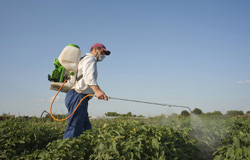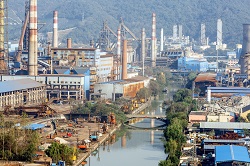Biosensors help keep pesticides off our plate
Pesticides are designed to eliminate specific pests and thereby increase crop yields. While purposely unhealthy for the pests, pesticides are also unhealthy for humans that eat the fruit and vegetables to which they’ve been applied. For this reason, many countries have set maximum residue limits (MRLs), above which the produce cannot be sold. The costs that companies face when implementing controls can be overwhelming. In an effort to make legal compliance more economically viable, a group of research organisations teamed up to promote biosensors. Biosensors provide instantaneous feedback and are consequently faster and less expensive than laboratory-based sampling techniques. The project, titled ‘Networking in the application of biosensors to pesticide detection in fruits and vegetables’ (Biodet), was supported with funding by the EU. Not all crops accumulate pesticide residue with the same affinity. The first step was therefore to identify which fruits and vegetables are most susceptible to exceeding the MRLs. The attention then shifted to the research and development (R&D) community to obtain information about the state of the art in biosensors with a focus on operationally ready technologies. Several meetings and events were organised to bring together potential suppliers with customers, namely agro-food companies, as well as academic and regulatory institutions. Following an in-depth analysis of the knowledge obtained during Biodet, a strategy was developed to stimulate pesticide detection with biosensors. Future R&D actions were recommended to improve end-user satisfaction. To this end, funding from both European Framework Programmes and private investors should be sought. Development of relevant standards and protocols for the use of biosensors can smooth over regulatory obstacles. Finally, the network of experts established during Biodet should be maintained and expanded in years to come. In addition to consumers, the environment also stands to benefit as improved monitoring will limit the pesticide burden on already strained soil and water resources.







